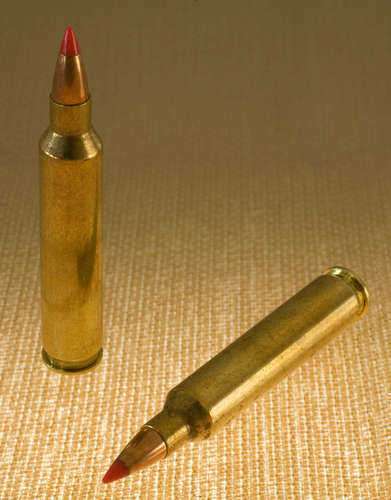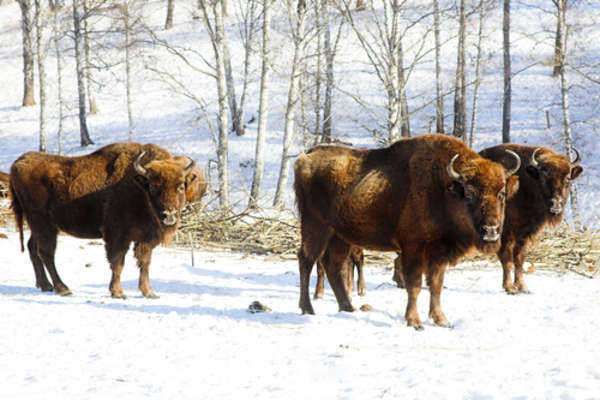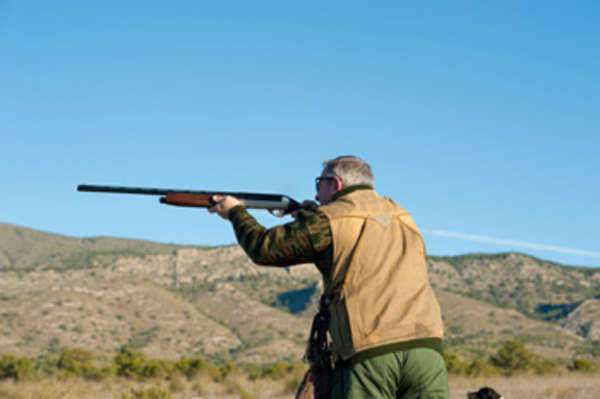Louisiana Hunting Laws



Prior to beginning to hunt the lands of the state of Maine, you probably fall into the category of needing a hunting license. These individuals include those 10 years of age and over as children under the age of 10 are not allowed to partake in Maine hunting.
Hunters falling into the 10 to 15 age range must possess a junior license and others 16 years of age and over must possess an adult license to hunt lands they do not own. Additionally, hunters 16 and older who wish to hunt with bow and arrow during the Special or Expanded Archery Seasons must acquire an archery license as well as expanded archery permits that fit their criterion.
There are various requirements and provisions prior to obtaining a hunting license as well. Firstly, upon desire to obtain an adult hunting license, you must present proof of having previously held one to hunt with firearms from 1976 or later or completion of an approved hunter safety course. There is also an affidavit available, however, for individuals who do not have possession of any proof whatsoever.
Similar terms exist for obtaining an archery hunting license. You must present proof of having held an adult license to with bow and arrow from 1979 or later or completion of an archery education course.
Once again an affidavit is also available. In order to acquire an adult crossbow hunting license, you must hold a valid license to hunt big game as well as present proof of completion of an archery hunting education course and a crossbow hunting course. In addition, you may also present evidence of having previously held adult archery and crossbow hunting licenses in this state or any other state, province or country starting in 1979 or any year following, also including substitution of an affidavit as a last option.
Convicted felons may not purchase or possess a firearms hunting license or a specialized hunting guide license unless they already have a permit to carry a firearm. Remember that you must keep your hunting license and all important permits with you while hunting or transporting birds or other wild animals in the event that any law enforcement representative, landowner, or department employee requests to see them.
Though there are rather ordinary specified legal hunting hours in Maine, there exist a couple of notable exceptions. When hunting coyote during coyote night hunting season as well as raccoons during night-hunting, you must do so only from a half hour following sunset to a half hour prior to sunrise, also ceasing hunting completely starting at midnight each Saturday and resuming at 12:01 AM on Monday.
Hunting hours for migratory game birds are from a half hour before sunrise till sunset. During spring wild turkey hunting season, legal hunting hours are from a half hour before sunrise to noontime. As always, being aware of these key times and regulations will make both your life and the lives of other hunters that much easier. If you need legal advice and assistance, contact Maine lawyers.

In order to hunt legally in Maryland, you must be in possession of a hunting license, which usually lasts about a year at a time, with the exception of the nonresident 3-day waterfowl and small game license. There are requirements prior to purchase of a hunting license in Maryland, however.
Firstly, you must present a Certificate of Competency in Firearms and Hunting Safety or certification that you held a hunting license prior to July 1, 1977. You may also present certification that you hunted on private property prior to the aforementioned date, and so, therefore, you were legally exempt from purchasing a hunting license.
As a nonresident, you may present certification that you are only purchasing a nonresident license and will only hunt waterfowl. Please note that resident junior hunters under 16 years of age are entitled to a one-time free annual hunting license, bow stamp, and muzzleloader stamp upon successful completion of a Hunter Safety and Education course.
There are distinct rules for trapping as well. Any individual prior to any trapping attempts of furbearers, which include beaver, coyote, gray fox, long-tailed weasel, mink, muskrat, etc., under a furbearer permit, must first obtain a certificate of trapper education from the department. These courses are proctored throughout the state so this requirement shouldn't be difficult to complete. In addition, similar certification issued by another state is acceptable if the privileges correspond with that of Maryland residents.
Exemptions do exist for certain individuals in connection to hunting licenses and furbearer permits. You do not need a hunting license if you are a resident of Maryland, or their spouse, who owns property and who hunts only on that property. Also, if you are a nonresident who owns land that is in both Virginia and Maryland, though live primarily on the Virginia portion, you may hunt on the Maryland portion of it without a Maryland license.
Despite these exemptions, there are a few notable things to be aware of. Though you are not required to have a license, you must obtain a free Maryland Big Game Harvest Record from the Maryland Sport License agent. Also, despite the contiguous land between states rule, a nonresident owning property in Maryland alone, and hunting on that property must still acquire a nonresident hunting license.
Keep in mind that exemptions from licenses still do require you to follow all state and federal laws and regulations relative to hunting and trapping as well as the hunter education and safety requirement. In terms of Furbearer permits, you are not required to possess one if you already have a valid Wildlife Control Cooperator Permit or if you are a landowner who only hunts and traps furbearing mammals on your land that are damaging an embankment, personal property, or disturbing the homes of fellow species on you land.
Maryland residents serving in the U.S. Armed forces and stationed in Maryland must purchase a resident hunting license unless they possess a copy of their official leave orders. In this case, they only need to purchase a maryland migratory game bird stamp, a federal migratory bird hunting and conservation stamp, and a furbearer permit.
Any nonresident, despite military leave, must however purchase a nonresident hunting license. Former prisoners of war who are Maryland residents are entitled to complimentary lifetime hunting licenses. Be aware of these exemptions and regulations stated earlier, and you will set yourself up for a worthwhile Maryland hunting experience. Contact Maryland lawyers for legal advice and assistance.

With over 50,000 acres of land, the wildlife inhabitant of the State of Delaware offers a multitude of wild game animals for hunting. To promote sustainability of the state's hunting practices, hunters must follow the local hunting laws of the state. There are laws that determine when, how, and where wild game animals are hunted.
All hunters must get temporary hunting licenses to hunt animals in a particular season. Each season pertains to what animal can be hunted at a specific time and which weapons can be legally used to hunt the creatures. Deer hunting is the most popular type of hunting in the state of Delaware however, sustainable hunting practices are of paramount importance to replenish populations every year. The killing of younger deer is more emphasized because young deer need to reach sexual maturity to reproduce. Only some of the more important laws are included in this article.
Contact the State's division of Fish and Wildlife if any additional information is needed. Hunting Licenses may be sold online on the state government's website. Otherwise, hunting licenses are sold at any retailer that sells hunting and fishing equipment.
Delaware's hunting laws are primarily concerned with the preservation of limited wildlife in the small state. This accounts for the intent behind most hunting legislation in the State of Delaware. Laws in Delaware aimed specifically at maintaining the fair chase crucial to ethical hunting render the use of a trap unlawful for most hunting most animals.
Drugs and poison are not legal means of hunting as well. Shotguns must be no larger than 10 gauge to ensure a humane death for hunted animals. Hunting at night is illegal for all non-nocturnal species. Hunting out of season or without a license, or killing more than the daily limit.
Disturbing animal nesting is also illegal. Hunting seasons are based primarily on the type of animal hunted and the method used to harvest game. Delaware law favor the use of less advanced hunting weapons like Muzzle loaders, bows and crossbows, and shotguns. Use of hunting Rifles is generally not legal.
Deer Hunting Seasons in the State of Delaware
The bag limit per hunter is 4 which consists of 2 does and 2 antler less deer with a license tag.
Archery Season: September 9, 2009 – January 31, 2010 (note: Hunter orange must be worn during all deer and muzzle loader seasons)
October Muzzle loader: October 9-17, 2009
October Antler less: October 2, 3, 19, 23, 24, 26, 30 & 31, 2009
November Shotgun: November 13 – 21, 2009
December Antler less: December 12 – 19, 2009
January Handgun: January 2 – 9, 2010
January Shotgun: January 16 – 23, 2010
January Muzzle loader: January 25 – 30, 2010
Muzzle loaders and Handguns may also be used during the shotgun seasons. Scopes on these weapons is legal; however, simultaneous possession of a shotgun and a handgun is illegal.
Small Game Hunting Seasons (2009-2010)
Eastern Gray Squirrel: September 15, 2009 – February 6, 2010 with a daily limit of 6 carcasses
Bobwhite Quail: November 23, 2009 – February 6, 2010 with a daily limit of 6 carcasses
Eastern Cottontail Rabbit: November 23, 2009 – February 27, 2010 with a limit of 4 carcasses per day
Ring-necked Pheasant (male only): November 23, 2009 – February 6, 2010 with a daily limit of 2 carcasses.
Wild Turkey: April 10 – April 30, 2010
Failure to observe any of these laws would result in fine and summons.


Hunting in Idaho is a process in itself prior to even taking hold of a gun. There are a number of things that must be acknowledged and completed in order to ensure the lawful hunting practices within the state of Idaho.
You must obtain any of the following licenses in order to proceed: Hunting, Fishing, Hunting/Fishing Combo, Junior, Youth Small Game, etc., which range in cost from as little as $7.25 for youth to as much as $117.25 for certain packages. A sportsman's package, for instance, includes deer, elk, turkey, bear, and mountain lion tags, archery, muzzle loader, salmon, and steel head permits.
If you prefer to hunt specific animals, you will need to purchase tags, which vary depending on the species. They include deer, elk, bear, second bear, mountain lion, second mountain lion, pronghorn, turkey, extra turkey, wolf and a combination controlled hunt tag for moose, bighorn sheep, and mountain goat. Failure to possess the appropriate tag for the animal you kill will lead to law enforcement interventions.
If you wish to trap what you've killed, you must also obtain any of the following licenses that you fall under the category of: Adult trapping, Juvenile trapping, and/or Taxidermist/Fur Buyer. You must also purchase permits which include any of the following: archery, muzzle loader, salmon or steel head, two pole, migratory bird, sage/sharp tail grouse, bear bait, hound hunter, wildlife management area, or federal duck stamp receipt. In order to begin any of the aforementioned processes, paperwork must be completed.
Be aware of the appropriate seasons in order to make your hunting experience most effective. In terms of firearms used, there is no state permit required for the purchases and usage of any rifle, shotgun or handgun. Residents may purchase any and all in the state of Idaho, though it is unlawful to sell to any minor under the age of 18 years without the written consent of a parent or guardian.
It is also unlawful for a minor under the age of 16 years to possess any gunpowder, shells, or any ammunition, except for shells loaded for use in shotguns and for use in rifles of 22 caliber or smaller, or any other similar firearms without also having written consent of their parents or guardians.
Children under the age of 12 are not permitted to be in possession of any firearms while in the fields or forests, tent, camps, or any vehicle unless they have a youth small game license or youth hunter graduate license and also accompanied by an adult licensed to hunt in the state of Idaho.
In addition it is against Idaho law for any felon or intoxicated individual to be in possession of a concealed weapon. Be advised that you must carefully understand the rules and regulations of hunting in the state of Idaho before any actions are taken. It is for the safety of every hunter as well as the preservation of these practices in the best way possible.

Kansas possesses a multitude of regulations depending on the species you will be hunting. All residents ages 16 to 64 must have a resident hunting license and non-residents, which include individuals having not been a legal resident of the state for 60 consecutive days; regardless of age, must have a nonresident license. Those with lifetime licenses are still considered residents, however, despite relocation to another state.
One-year of residence is required prior to application for this particular license. Free hunting licenses are offered to any resident who is at least 1/16th Indian by blood and who is also enrolled as an American Indian on a tribal membership roll that is federally recognized by the United States Department of Interior. There are groups who are exempt from hunting licenses as well.
These include: owners of land and their immediate family or tenants who hunt on their land, and Kansas residents 15 and younger or 65 and older. However, every hunter is subject to the same rules and regulations. A Kansas license is also necessary for hunting reptiles and other species. There is no specific possession limitation except for amphibians and reptiles, which is specified as 5 of any one species.
Prior to hunting turkey, anyone born on or after July 1, 1957 must be certified by an approved course in hunter education provided they are also under direct supervision of an individual who is at least 21 years of age. It is illegal to hunt on private land without authorization. It is also illegal to sell wild game meat, but fur bearer meat is fine.
Giving away of game to another person must include the donor's name, address, hunting or fishing license number or permit, signature, and date of donation. Pursuit of game or fur bearer in any type of vehicle is also illegal unless you possess a disability permit, or are hunting waterfowl from a stationary boat, or coyotes.
As for gun laws in the state of Kansas, there is no state permit required to purchase a rifle, shotgun, or handgun. Kansas gun owners are also not required to possess a license. There is also a Kansas law enabling residents to purchase rifles or shotguns from licensed dealer in adjacent states, provided that the purchase complies with Kansas laws and with all federal requirements.
It is, however, unlawful to knowingly sell or give any firearm with a barrel less than 12 inches to any person under the age of 18. Additionally, it is unlawful in the state of Kansas for a person who is under the influence of a controlled substance, a convicted felon, or a juvenile offender to be in possession of firearms.
Though, the state law does not generally restrict open carrying of a handgun, but the attorney general does issue licenses to carry concealed weapons. These licenses are valid throughout the state for a period of 4 years from the date it is issued. Being aware of these rules and regulations according to the state of Kansas will allow you as the hunter to better your overall experience.


Indiana law, much like most of the rest of the United States, requires that any hunting activities must be done on the contingency of applying for the proper permit. Indiana hunting is presided by the Indiana Department of Natural Resources, and imposes the regulations and restrictions regarding the hunting of the various game under Indiana law.
Indiana hunting laws are divided according to the type of hunting being undertaken, as well as what kind of game is to be hunted. Furthermore, there are certain requirements that must be met in order to obtain the proper Indiana hunting license. General provisions for acquiring an Indiana hunting license are:
A resident of the state of Indiana for at least sixty consecutive days before submitting an application for a hunting license.
All others that do not meet this requirement are considered as non-residents, and must adhere to the specific procedures to acquire such an Indiana hunting license, as well as any imposed regulations and restrictions by Indiana law.
The Indiana hunting license must carried on the person at all times while hunting. This also includes the HIP certification number if engaged in hunting specific kinds of bird game.
Must be at least the age of thirteen to obtain an Indiana hunting license. Those under the age of thirteen must be accompanied with an adult of at least eighteen years of age with a valid Indiana hunting license. Apprentice and youth licenses shall be issued as deemed appropriate by Indiana law.
Hunting licenses issued to those born after December 31st, 1986, are contingent upon the completion of the hunter education class as offered by the Indiana Department of Natural Resources.
Indiana hunting licenses are granted to qualified individuals and must be issued for the appropriate type of game to hunted. The most common type of game hunted in the state of Indiana are deer, dove, turkey, pheasant, quail, ruffed grouse, turkey, and various types of waterfowl. Each type of game and the type of weapon employed for hunting are subject to Indiana hunting laws that dictate the appropriate seasons for each, which are as follows for 2009-2010 season:
Deer
Youth: September 26th and 27th, 2009
Early Archery: October 1st, 2009-November 29th, 2009
Firearms: November 14th, 2009-November 29th, 2009
Muzzle loader: December 5th, 2009-December 20th, 2009
Late Archery: December 5th, 2009-January 3rd, 2010
Pheasant
November 6th,2009-December 21st, 2009
Quail
November 6th, 2009-December 21st, 2009
November 6th, 2009-January 15th, 2010
Turkey
Youth Spring: April 17th and 18th, 2010
Spring: April 21st-May 9th, 2010
Fall-Archery: October 1st-2009-October 25th, 2009
Fall-Firearm: October 21st-October 25th, 2009
Ruffed Grouse
October 1st, 2009-December 31st, 2009
Indiana hunting laws also provides for certain times of day in which hunting of game can take place during a season. Turkeys can be hunted a half-hour before sunrise until sunset. Deer are allowed to be hunted a half hour before sunset until a half hour after dusk.
The other types of game have similar types of restrictions and should be consulted with the Indiana Department of Natural Resources. Any person that hunts for any particular game out of the seasons as allowed by Indiana hunting laws is subject to penalties and fines by Indiana laws, as well as be liable to lose their hunting license.
As with any state, Indiana hunting laws can be quite extensive and very specific. Therefore, it is always recommended to consult with the appropriate agency regarding the provisions and regulations for hunting, as well as the necessary requirements for hunting licenses.
